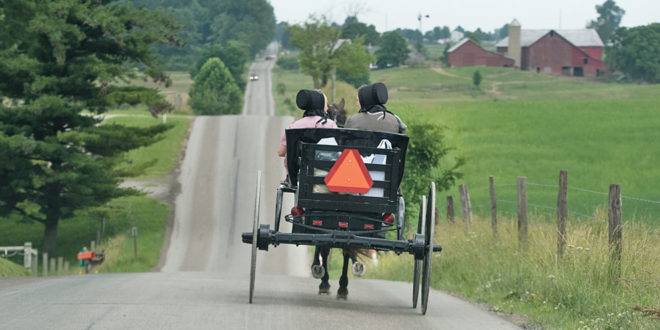Practicing Forgiveness
That very day, a grandfather of one of the murdered Amish girls warned some young relatives not to hate the killer, saying, “We must not think evil of this man.” Another Amish father said, “He had a mother and a wife and a soul and now he’s standing before a just God.” Jack Meyer, a member of the Brethren community living near the Amish in Lancaster County, explained: “I don’t think there’s anybody here that wants to do anything but forgive and not only reach out to those who have suffered a loss in that way but to reach out to the family of the man who committed these acts.”
Hours after the shooting, an Amish neighbor comforted the Roberts family, extending forgiveness. Amish community members visited and comforted Roberts’ widow, parents, and parents-in-law. One Amish man held Roberts’ sobbing father in his arms, reportedly for as long as an hour. About 30 members of the Amish community attended Roberts’ funeral. A short time after the shooting, the Amish set up a charitable fund for the Roberts family.
These are snapshots of forgiveness.
Advocate for Justice
I’m a big advocate of all forms of justice—social justice, distributive justice, procedural justice, and even retributive justice. On the latter, I recently co-wrote a book called A Deep but Dazzling Darkness, which presents a case for the increasingly unpopular notion that God will actually punish the wicked (I break into a micro-sweat even writing that, so acute is my awareness of some people’s reactivity.). What I mean to say is that I have a solid appreciation for God’s wrath and the constellation of traits that accompany it. Without divine retributive justice, the gospel message loses tone and vigor.
But when I read stories like the one above, I vow never to become such a justice junkie that I forget the point of justice—that in our case, God averted it. By taking our due Himself, He justly forgave the human race. He absorbed the pain, embraced it even, and then disposed of His right to pass it on. Likewise He calls us to embrace the Cross of pain and release our “right” to exact revenge. The Greek word for “forgiveness” means “to send away.” I love that analogy. When my ruminations begin to boil over with a never-ending litany of wrongs suffered I purposely, consciously, “send away” the revenge my natural heart craves. And it’s a blessed relief.
Getting Over Grudges
Someone said that to bear a grudge is to drink poison hoping to kill someone else. For those who long to “send away” some wrong suffered, I’ve developed a worksheet I’d be happy to e-mail to you.
Let me close with some poignant words from the musical Jane Eyre:
We must not hold a grudge
We must learn to endure
Then as God is your judge
At least your heart will be pure
When they bruise you with words
When they make you feel small
When it’s hardest to bear
You must do nothing at all
Forgiveness, is the mightiest sword
Forgiveness, for those you fear will be your greatest reward
Written by Jennifer Jill Schwirzer
If you liked this, you may also like The Need for Forgiveness
© 2002 - 2026, AnswersForMe.org. All rights reserved. Click here for content usage information. Answers for Me Support & encouragement for every-day life
Answers for Me Support & encouragement for every-day life



